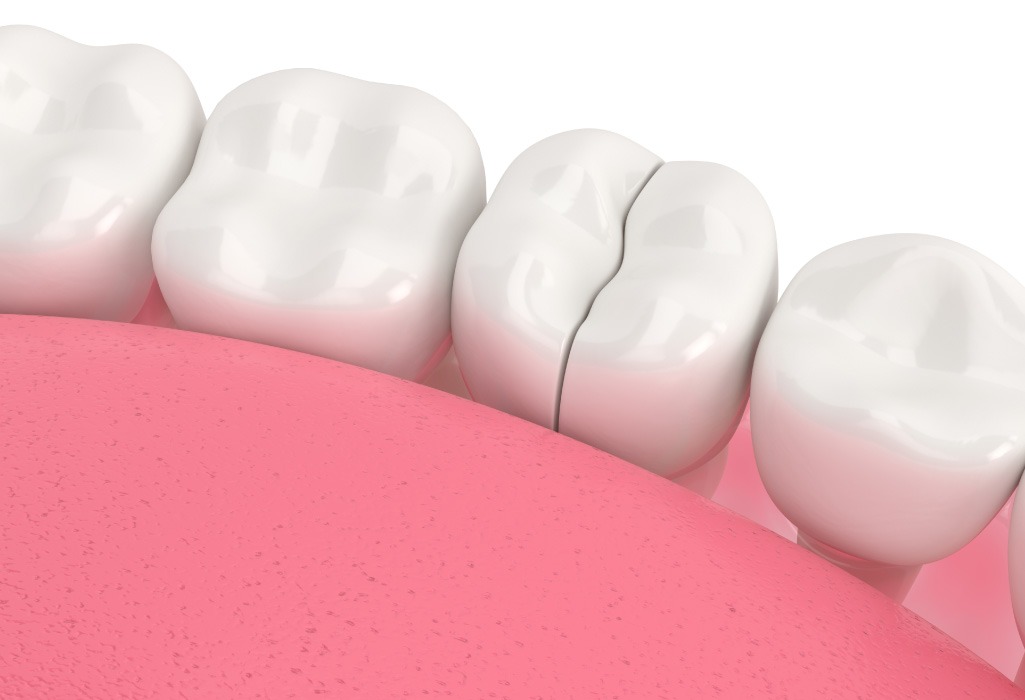Can A Cracked Tooth Heal On Its Own?

If our skin and bones could heal on their own, you might be thinking, why can’t our teeth do the same. A tooth can handle up to 70 lbs. of biting force, but with certain limitations.
Discover if your cracked tooth can heal on its own and why you should visit your dentist as soon as you crack your tooth.
Q: Can your cracked tooth heal on its own?
A: Our teeth may grow in the gums, but they cannot regenerate and heal themselves. It is the reason why your dentist provides the best possible solutions to preserve your natural teeth.
The pearly white feature of your teeth has been with you since you were born, and nothing can ever compare to the quality of your natural tooth. The inability of our teeth to redevelop or regenerate has a lot to do with their composition.
Knowing more about your teeth
Our teeth develop inside the womb of our mothers during the sixth week of pregnancy. Contrary to popular belief, our teeth are not bones. The tooth enamel is made of calcium phosphate. It is often mistaken as a bone since it needs calcium to be strong and healthy
Our tooth consists of tooth enamel, dentin, cementum, and tooth pulp. The tooth enamel serves as the sturdiest part of our body that can handle several pounds of bite force. It protects the blood vessels and tissues in the dental pulp responsible for supplying it with calcium.
However, tooth enamel is not made of living tissues and blood vessels. Therefore, it cannot regenerate and heal itself, unlike our bones.

What is a cracked tooth?
A cracked tooth is the result of a bad bite or an injury. The damage can expose the inner layers of your tooth and open it up to disease-causing bacteria. In worst cases, the cracks may reach the tooth root resulting in tooth loss.
Causes and symptoms of a cracked tooth
A cracked tooth can be due to extreme pressure on the tooth enamel. Other causes include:
- Using your teeth as a tool
- A bad bite
- Injury or trauma
- Too much pressure on the tooth due to teeth grinding
- Sudden change in temperatures like drinking cold and hot beverages
- Weak tooth due to old age
Most patients only realize that they cracked their tooth when they experience any of the following symptoms:
- Tooth sensitive to cold or hot beverages or food
- Pain when biting or chewing food
- Throbbing pain and gum swelling
Treatments
The dental treatment for a cracked tooth depends on the scope of the damage. Your dentist will check if the crack is mild or reached the crucial part of the tooth root. Here are the dental treatments for specific types of cracked tooth:
- Filling or dental bonding: Your dentist can still save your tooth if you only have minor cracks or fractured crusp in the chewing surface of your tooth. A tooth-colored resin will be placed on your teeth to seal the tooth enamel and prevent the bacteria from affecting the tooth pulp.
- Root canal: If the crack reaches the tooth root, chances are your tooth will be beyond repair. Tooth extraction is an option, but your dentist may recommend a root canal if you want to preserve your natural tooth. In a root canal procedure, the damaged tooth root will be removed and replaced with a filling to prevent further infection.
- Crowns: When the cracks on the tooth weaken the tooth enamel, your dentist will recommend a dental crown to protect your weak tooth and restore your ability to chew or grind your food. Crowns can help you use your tooth like it was never damaged before.
Let Locust Family Dentistry restore the look and strength of your cracked tooth
Your cracked tooth may not heal itself, but your dentist can prevent it from falling apart. Preserve your natural tooth before the crack gets worse. Locust Family Dentistry provides root canals, crowns, and other dental restorations in Locust. You may schedule an appointment now and let our team beat the time to save your natural tooth.




